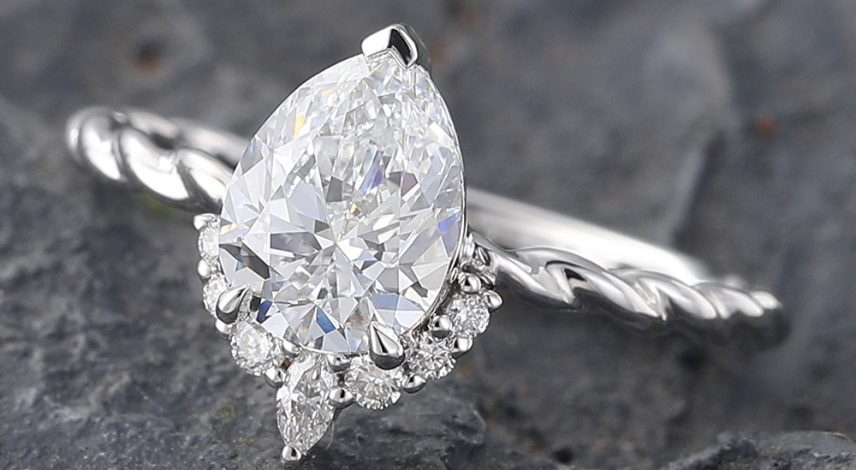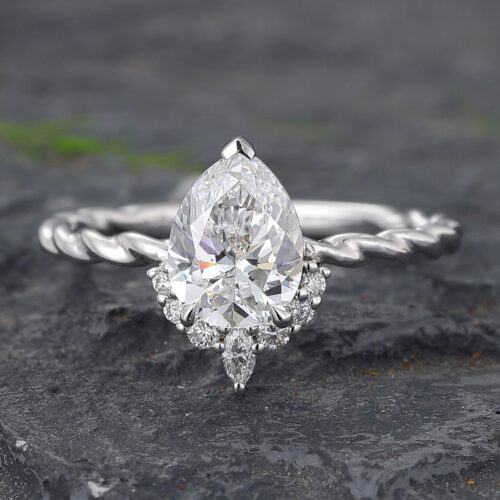


shop BY BAND STYLES
shop BY STONE ARRANGEMENTS
shop BY DESIGN STYLES
shop BY METAL COLOR
shop BY STONE TYPES
shop BY BAND STYLES
shop BY STONE ARRANGEMENTS
shop BY DESIGN STYLES
shop BY METAL COLOR
shop BY STONE TYPES
shop BY BAND STYLES
shop BY STONE ARRANGEMENTS
shop BY STONE TYPES
shop BY METAL COLOR
SHOP BY STYLE
GIFTS BY OCCASION
GIFTS BY PRICE

✚ BY BAND STYLES
✚ BY STONE ARRANGEMENTS

Diamonds are known as the hardest natural substance on Earth, but many people still wonder: Do diamonds scratch? Despite their legendary durability, diamonds are not indestructible. This article explores what it truly means when we talk about diamond hardness, what can and cannot scratch a diamond, and how you can protect your precious gem.
Diamonds rank 10 on the Mohs scale of mineral hardness, meaning they can scratch almost any other substance. But the Mohs scale only measures surface resistance to scratching, not overall durability or toughness. So, while diamonds are extremely hard, that doesn’t mean they are immune to damage.
For most daily activities, the answer is no. Your diamond won’t scratch from contact with keys, coins, or most household materials. However, it’s a myth that diamonds are completely impervious to scratches. Another diamond, or something equally hard, can leave a scratch. So if you’re stacking diamond rings or cleaning with industrial-grade abrasives, you’re risking surface damage.

The only material that can reliably scratch a diamond is another diamond. That means when diamonds rub against each other in a jewelry box or during a repair process, scratches can occur. Some synthetic materials, such as industrial-grade boron nitride or moissanite under rare lab conditions, may cause micro-abrasions, but this is highly unlikely in everyday life.
Yes, technically. If two diamonds come into contact with force, one can scratch the other. That’s why jewelers recommend storing each diamond item separately and avoiding direct contact between diamond surfaces. Especially in multi-diamond settings, contact over time may lead to slight surface wear.
While asking do diamonds scratch, many people actually confuse scratches with chips. A chip is a small fracture, usually occurring along the edges or points of a diamond, especially in shapes like princess or marquise cuts. Chips result from impact or rough handling, while scratches are surface-level abrasions.
Good care minimizes the risk of scratches and keeps your diamond looking its best. Here are a few practical tips:
Store diamonds in soft-lined boxes or separate pouches.
Avoid wearing diamond jewelry during sports or heavy labor.
Have your settings checked regularly to ensure stability.
Clean your diamond with a soft brush, mild soap, and warm water instead of abrasive chemicals.
Following these steps won’t make your diamond invincible, but they will dramatically reduce the risk of scratches.
Absolutely. Because diamonds are harder than gold, platinum, and most gemstones, they can easily scratch softer jewelry if stored or worn together. Be cautious when stacking rings or mixing jewelry in a box without individual compartments.
Not all diamonds are created equal. Lower-quality stones with many inclusions or those that have been treated may have weaker structural integrity. Similarly, poor cutting or setting can expose vulnerable areas to more wear. If you notice scratches on your diamond, consider getting it evaluated to check its overall health.
So, do diamonds scratch? Yes, but it takes a lot. While diamonds are extraordinarily hard, they’re not invulnerable. With proper care and knowledge, you can keep your diamond scratch-free for decades. Understanding how and why diamonds scratch helps you protect your investment and enjoy its brilliance for a lifetime.